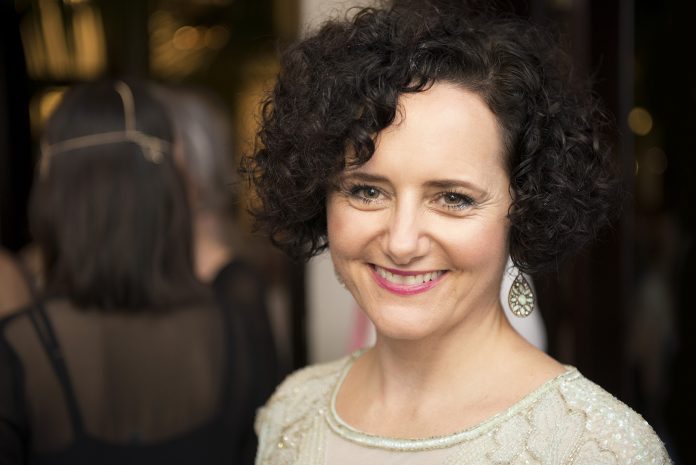I have witnessed many changes within medicine over the last 30 years – one of which has been the increasing fragmentation of medicine despite the increased focus on the importance of holistic medicine. This fragmentation is across the board and exists on many levels.
Fragmented Healthcare
As our knowledge of anatomy, physiology, biochemistry, pathology, pathophysiology, pharmacology and the many varieties of illness and disease has expanded, it was recognised that it was not feasible for all doctors to be expert and up to date in every area of medicine and thus increasingly doctors have focused on one area or specialty. This has the advantage of doctors being able to concentrate on an area in which they can become expert but the disadvantage that they may lose skills and knowledge that apply to other specialties.
Apart from those who work in remote locations and who may, because of their work location, have to be true generalists, the numbers of doctors to whom that name could apply are increasingly few. We tend to focus on parts or on a particular body system or age of patient – e.g. the heart in cardiology, the skin in dermatology, the large bowel in colorectal surgery, the mind in psychiatry, care of the elderly – and on and on the list could go.
Whilst I see and understand the advantages for both patients and doctors of specialising, I wonder if the pendulum has swung too far. By dividing medicine and the human body into its many parts and focusing on them separately, have we lost sight of the whole of medicine and the whole of the patient? By concentrating on one or two areas, we become less comfortable addressing issues or conditions that are outside those areas and so we refer to other doctors in the relevant specialty. In an age when the multi-symptomatic man is increasing, such a patient can end up being seen by many doctors focusing on the parts with no one doctor addressing the whole of the patient and their needs.
This occurs despite there supposedly being a greater awareness of the importance of holistic medicine – which in truth is a term that is often bandied around (or recognised) as a good thing to do, but in practice is rarely applied, where all aspects of the patient are considered in illness and disease manifestation and treatment.
Whilst sub-specialising was and is done with good intentions of having experts in certain fields that could potentially offer the ‘best’ treatment & advice for patients with those conditions, and which also was more manageable for the doctors, is it possible that in doing so we have in fact moved further away than ever before in providing true holistic care?
Fragmented Ways of Working
In addition to the increasing fragmentation of medicine by systems/organs etc., we also have had more fragmented ways of working. When I was in training, we worked in teams for periods of usually 6 months, occasionally 3 months, and some later and more specialised training positions could be for 12 months. As a house officer (the most junior level of doctor, just after graduation), there was a good sense of camaraderie in the team, with everyone playing their part and when all the parts worked well together, the team as a whole functioned well. We worked an on call system that could be onerous, but facilitated us working as a team, as we were present every day on the ward. The introduction of the European working time directive and reduction in hours of work for junior doctors has led to shift working which has crucified team working. with different doctors coming and going and a lack of consistency and continuity in team working. This has many detrimental effects where junior staff have a reduced sense of responsibility and accountability for patients because they are not caring for them every day.
We all lose out on the interpersonal relationships that can be established by consistent team working. Consultants become frustrated by the constant turnover of new faces and having junior doctors who do not know the patients and who are just covering for a day or two. This is a situation that adds more stress to both the consultant and the junior doctor. Most junior doctors want to do a good job and it is also not easy for them to be continually passed from team to team and to have to get to know the vagaries of working for each consultant and getting to know a fresh set of patients to care for every few days. Of course, all of this impacts on the quality of patient care and so patients too are definitely affected by the increasing fragmentation of working patterns of doctors.
I am not suggesting that we go back to working onerous hours – just highlighting that in attempting to solve one problem (onerous hours of work) is it possible we have created many more, all of which impact the quality of care for patients?
Is it due to ‘systems’ or how they are designed?
We have a tendency in medicine to blame the systems of working for the high levels of burnout, stress, addiction and suicide experienced by the medical profession currently. The fragmentation of medicine is a contributing factor. The systems have been designed and emerged from people – the problem is that those systems were not designed with true care of the human being foremost. Thus it is not necessarily systems per se, but the fact that they have emerged without a focus on true care for the human being – be that human being the patient or the doctor.
We cannot hope to have a caring medical system if it only focuses on care for the patient without care for the doctor, or indeed any of the healthcare professionals.
Medicine as a whole, contains both patients and doctors and to care for only a part is detrimental to the whole. Perhaps if we shift our focus away from ‘patient’ or ‘doctor’ and make it about the human being, irrespective of the role being played, then perhaps we may make some in-roads to designing and having systems that are caring for the whole and not just a part.
One Life
However, this change has to first start within ourselves and will not come from expecting or demanding that managers and politicians do it differently and come up with better systems. As doctors we need to realise that medicine is something that we do, but it is not who we are – we are human beings. As human beings we take on the role of a doctor who is recognised to be someone with a set of skills and knowledge about the human body, health, illness and disease. In the same way, a lawyer is a human being who knows about the laws of the land, or a farmer is a human being who knows about crop rotation and animal management and the list could be extended to all professions. We must not conflate what we do with who we are.
I used to think that what I did in my private life and what I did in my professional life were two separate things that did not impact on each other. So long as I was professional at work, then I could do what I liked outside of work and it would not impact work. I had different hats I put on depending on where I was and what I was doing. My surgeon hat went on during the day and my party hat went on during the evening/night. I thought at the time this was ok, but I now know that it is not. Many others may also have their work hat and their home hat – thinking that we have different parts to play according to what we are doing.
This is also a key part of the fragmentation of medicine – the fragmentation of ourselves according to what we do rather than just living who we are all of the time.
The doctor and the human being must become one and not exist as separate parts. In so doing it is obvious that how we live outside of work also impacts how we are inside work and as such it is one human being living One Life, where all moments and movements in that life matter.
The microcosm reflects the macrocosm – if we are divided in how we see ourselves and separate the doctor and the human being, then it is no surprise that this fragmentation is reflected throughout medicine in many different ways. If we are to have a truly holistic medical system rather than the medicine of many parts, then we must start with ourselves and end the separation of being a doctor and a human being. We only need to be who we are no matter what we are doing – be a human being and make that the focus of deep care.
Being human beings before we are doctors – how would this play out in life?
Well it would mean that if someone chooses to learn the practice of medicine and to work as a doctor, then it would be important to realise that choice comes with a certain level of intensity and pressure of work, that it is a stressful occupation and thus that intensity means we need to adjust our lifestyle accordingly. How we live every day impacts our ability to cope with that stress and is affected by every day simple things like what we eat, how we exercise, our emotional state of being, what we drink and so on.
Instead of burning the candle at both ends as I did, it would bring a degree of care and responsibility that before going in to do a long operation we would make sure we had a good night’s sleep beforehand. We would structure our holidays throughout the year to ensure we had sufficient breaks from the intensity so we did not become overwhelmed. And even better would be to work and live in such a way that we do not ‘need’ breaks to recover, because we have a maintained and sustained quality of living that actually prevents that need due to exhaustion or overwhelm arising – a work in progress for sure, but it is possible. The ways are myriad in terms of changes we can make to our lifestyle in order to support the level of intensity and work required as a doctor.
Furthermore, if we made the focus about the human being and not what we do as a profession, this would go some way to dissolving the arrogance of the medical profession that holds itself superior or in some way special to other healthcare professionals. There would be a much greater acceptance of the parts played by other healthcare professionals that go to make up the whole of medicine and thus they too would be afforded the respect they deserve as equal human beings who have a skill set that is a necessary part of delivering whole healthcare.
This would lead to more harmonious and respectful working relationships with human beings relating to other human beings rather than ‘doctors’ and ‘nurses’ for example. Of course this arrogance doesn’t just exist between different professions but occurs within the profession also – whereby surgeons will consider themselves more important than physicians and even within surgery there will be subspecialist arrogance to contend with as well and is all too rife given we are all supposed to be working together for the benefit of all patients.
Thus we have plenty of work to do to break down these false ideals and barriers to true collaborative and harmonious working relationships. As long as we continue to give focus to the medicine of many parts and practices that perpetuate the fragmentation of medicine in whatever form that comes, then we cannot expect to deliver whole medicine or whole patient care.
If we continue to believe that doctors are in any way special or different to other human beings and that we can as doctors wear different hats at work and at home, then we will pay the price for perpetuating that separation both personally and professionally.
We are human beings first and foremost – working as a doctor is what we do but it is not who we are. By making the focus of care the human being and applying true care to both our working and non-working/home lives, we will be more ably placed to provide that same quality of holistic care to those human beings we call patients and to change toxic systems and ways of working from within by knowing what it is to care for the human being first and foremost irrespective of the role adopted.
It requires a sea-change in how we see ourselves and others – as equal human beings deserving of deep care, love and respect irrespective of our role and to abandon the deeply harming illusion that we, as doctors, are somehow superior. Our role as healthcare providers and advocates requires us to live in a way that is responsible and healthy both inside and outside work – for ALL that we live comes with us and impacts the quality of care we can provide.
Specialisation within medicine is still of course needed, but it should not be at the expense of providing holistic care and the more we live this for ourselves, and care for our whole being and body, the more we are able to provide it to others – be it simply through a wise or kind word, a gentle touch or listening ear and the reflection that there is another way.
Yet, we are only scratching the surface of the potential available to us – even holistic medicine, great as it would be if practised in full, is kindergarten level compared to the vastness available to us were we to embrace Universal Medicine that sees and knows we are universal, energetic multidimensional beings and not ‘just human’ beings.This article was first published on 24 September 2019 by Dr Eunice Minford on The Soulful Doctor.










Thank you Eunice. You echo many of my thoughts. We need to function within a community of care, one for another, across professional and doctor-patient boundaries, in order to survive in present times. We need to honour our own, and others human needs, and make those the focus of our attention and systems…..How we get there when we’re starting from a place of brokenness is our challenge.